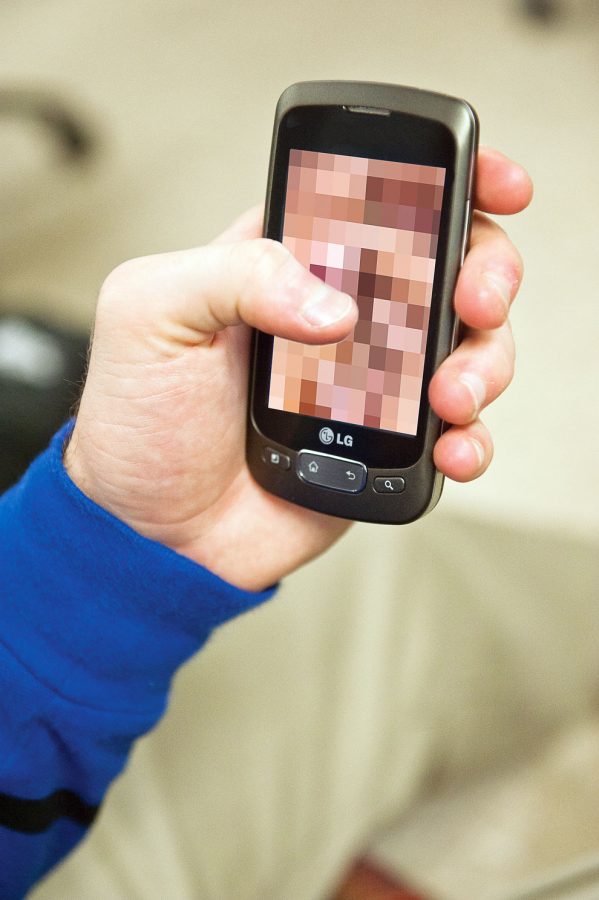From Scarlett Johansson to Anthony Weiner, there are often high profile “sexting” incidents in the news. For celebrities, it can provide a much needed publicity boost. For politicians, it can ruin careers.
But a recent University of Rhode Island survey shows that sexting is not just reserved for public figures: four out of five college students do it, too.
The study, reported earlier this summer in Time’s Healthland, found that 78 percent of students admit to receiving sexually explicit messages, while 56 percent said they’ve received explicit images.
According to the National Conference of State Legislatures, at least 21 states have introduced bills or resolutions aimed at sexting among minors in 2011, and at least 14 states have enacted bills to address the issue. Alabama has not.
Between adults, though, sexting is legal. And while most would classify sexting as a private and personal choice, the fact remains that any missteps in the process can make the act very public.
Weiner accidently exposed his pictures on Twitter when attempting to send a private message. Johansson and other celebrities fell prey to phone hackers. Jaded exes have been known to release explicit videos.
So why do people continue to make themselves susceptible to this literal public exposure?
Mary Katherine Alsip, a researcher for the University of Alabama Institute for Communication and Information Research, said it has to do with younger generations’ affinity for technology.
“Many students who sext think that they are more tech-savvy than someone like Anthony Weiner,” Alsip said. “This gives them a false sense of security that they know more than the people who are victims of hacking, theft or simply losing a phone.”
The University of Rhode Island study reports 73 percent of sexting messages were sent to a current romantic partner – a fact Alsip said does not safeguard your privacy. Citing pop culture references, Alsip said students might have a skewed sense of real life consequences, even when sexting a trusted partner.
“In ‘Gossip Girl,’ one character was applauded for pointing out that, ‘Sexting is…off limits until you’re in a relationship.’ The problem with this advice is that it assumes that there is no chance that a bitter breakup [could happen] or accidentally misplacing a phone could still result in those exchanges falling into the wrong hands,” Alsip said.
Alsip said she believes pop culture examples of sexting without any consequences can lead people to underestimate the possible ramifications of their actions.
“Viewers are coming of age, watching characters make flippant remarks and acting without fear of repercussions, so they feel like not only is this behavior safe and okay, it’s normal and expected of them,” Alsip said. “Just as many television characters who have promiscuous sex almost never face pregnancy, STDs or other serious consequences unless it is a key part of story arc.”
In addition, the world of texting and cyberspace offers a sense of anonymity. Most students would never sneak around an ex’s house to spy on them, but Facebook “stalking” has become a basic social media institution.
The feeling that sitting behind a screen and doing something is less embarrassing than doing it in person may contribute to the current trend.
“If you take your clothes off in a room with six other people, they’re the only ones who are going to see it,” Alsip said. “If pictures of you with your clothes off are sent to six people who then send it to their friends, pretty soon what felt like a less embarrassing situation has become a disaster.”
In the end, while it might make for a funny storyline in a sitcom or a racy news clip, sexting can have very real and very embarrassing consequences.
Alsip offers common sense advice to avoid any distressing mishaps: don’t keep revealing images on your phone or social media accounts.
“This is a recipe for disaster, whether or not you intend to send them to someone else. If you wouldn’t want to see it posted on your best friend’s Facebook wall, you probably don’t want it to be accessible to other people,” she said. “Sync your phone with your computer and forget to tell it not to import that picture? Now there’s one more copy of it for someone – a hacker, an irritated ex, or even a drunk buddy – to find and pass along.”









